
|
||
|
Portland art blog + news + exhibition reviews + galleries + contemporary northwest art
|
||
Resist at Una Gallery We live in far too interesting of times and artists act somewhat like canaries in the coal mine for the rest of civilization. Often existing right on the brink, they find the tensions of the age and the unsettling of the ways our daily routines become furrowed into ruts. They also uncover new paths and understandings through their work and both aspects speak for their importance. It also means that they are left more exposed, like clusters of nerve endings at crucial parts and the extremities of the civic body.
Most get their starts in alternative spaces, which are a big part of why Portland is an interesting art city (we have many though we have lost some good ones). Since most of our more established art institutions are still playing catch up or trying to find their edge, the alternative spaces are what drive Portland's reputation. As I showed the Wall Street Journal years ago, alternative spaces and lifestyles are always on the front lines of a vibrant cultural scene, yet it is these spaces and cheap studio space that are endangered by Portland's relatively new status as a hot real estate investment city. 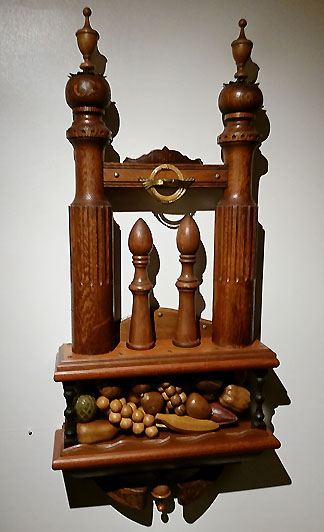 Dan Pillars, Wedding at Una Gallery That's why RESIST, Una gallery's third show is important and presents Portland as a vital contemporary art scene within the protective non profit Everett Station Lofts enclave. Una's mission statement for presenting "non-established" and "experimental" contemporary artists with less mainstream identities was a big reason they were awarded a Precipice Fund grant late last year (I was one of the 4 panelists). I am happy to report that in 2017 Una is already delivering with provocative, sometimes excellent work. 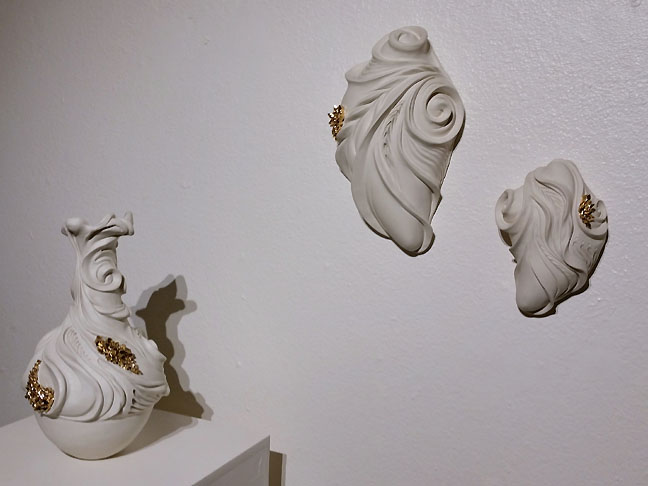 Maya Vivas (L to R) El Crecimiento Continua and Semillas The first works one encounters upon entering Una's small corner gallery (with views of PNCA) are Maya Vivas' porcelain sculptures. The vase-like piece El Crecimiento Continua (growth continues) never truly reads like a vase. The folds, reminiscent of Bernini fabrics or the folds of a Georgia O Keefe flower painting seem at odds with the static, funereal white vase form. It is as if the unfurling and closing of the flower form critiques the traditional vessel form. The artist describes traditional vases "heteronormative" forms and she succeeds here, particular with the inclusion of gilded fruit-like clusters that break the white porcelain folds. In keeping with the "continues" in the title the work seems to be unmaking itself by becoming floral. Normally, a vase just holds the stems of roses and doesnt become one. Its a good inversion of roles. Two other wall pieces, which Vivas calls Semilla(s) can be translated as seeds, but they also feel mournful, like baroque tears. Being different has never been easy and the use of porcelain reiterates the fragility of the situation. Let's not forget that far right wing forces at work today have been targeting spaces like Una...emboldened by a great deal of racist and sexist rhetoric from the highest office in the land. 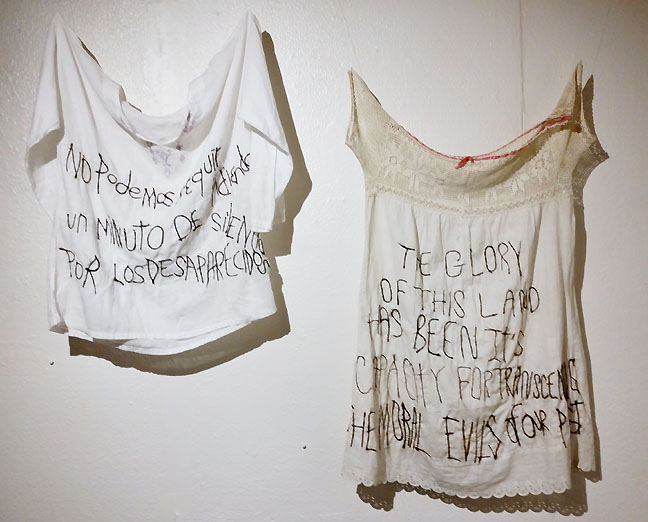 Andrea Beck at Una Gallery Directly to the left of the porcelains are two pieces by Andrea Beck. Somewhat straight forward, Los Desparacios (the outcasts) and The Glory of this Land are embroidered garments with words that remind us that immigrants have always been both outcasts and vital to the American experience as well as economy. In particular the embroidered Ronald Reagan quote, "The glory of this land has been its capacity for transcending the moral evils of our past," hits its mark. It is a stark reminder of how uncharted territory the country is steering its way into... as well as a test of our resilience. The rest of the quote is thus, "For example, the long struggle of minority citizens for equal rights, once a source of disunity and civil war, is now a point of pride for all Americans. We must never go back. There is no room for racism, anti-Semitism, or other forms of ethnic and racial hatred in this country." By quoting Reagan, Beck is making a stunning nonpartison rebuke. The garments look like the sort of blouses young women might wear. 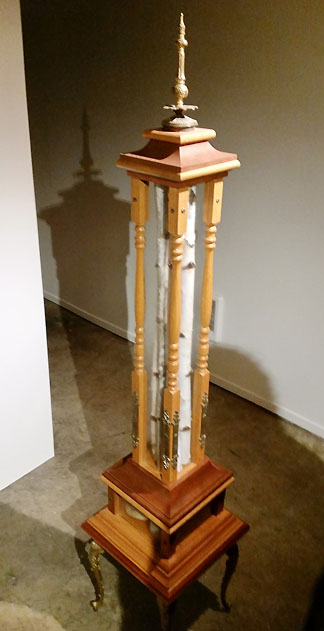 Dan Pillars, Sticks and Stones (2016) The most thoroughly realized work in the show is provided by Dan Pillars, a self described "Big Old Fag." His similarly memorial works differ from Vayas' in that they are primary wooden constructions, that remind me a great deal of H.C. Westermann and tombstones. His tall, floor-based construction titled, Sticks and Stones, is literally a Victorian come pioneer freestanding obelisk, which encases both sticks and stones. Much of Pillars' work employs a lot of words but in this case I prefer how these emblems of oppression imply strength without language. I can't possibly know what its like to be Dan Pillars but if the occasional taunts I have heard at public tennis courts of “Fags” are any indication, the pressure of hate has likely never been far away from this artist. The piece takes the literal weapons to create a physical trophy, giving the piece a haunting effect. Even the human sized scale of the work reiterates the invitation to empathy aspect of the work. There is poise and perseverance here in the face of emboldened hateful acts and rhetoric. It is my favorite work in the show. 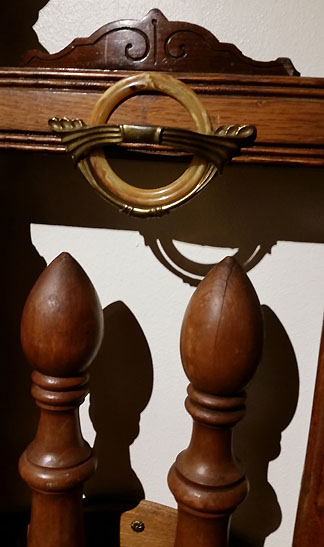 Detail of Dan Pillars Wedding at Una Gallery Other pieces like Wedding, a wall based conglomeration of turned twin wooden phallic/furniture forms recall that many same sex couples have just recently been allowed to marry... the last legal piece of home life that is as much a form as the furniture used to make the piece. It reminds me of the that great Marsden Hartley painting, Portrait of a German Officer from 1914. A memorial of respect and Love. In this case it is furniture and wooden fruit forms, a domestic badge of honor. 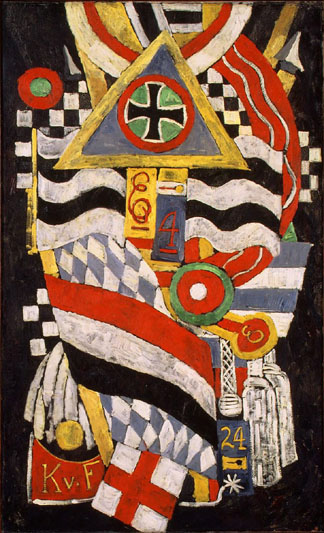 Marsden Hartley, Portrait of a German Officer (1914) in the Metropolitan Museum's collection 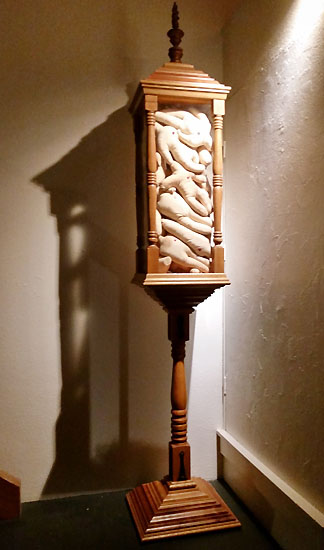 Dan Pillars, Remembrance at Una Gallery The last piece by Pillars, Remembrance, is likely a memorial to those who died of aids. It is another obelisk filled with human forms and like everything else from this artist is executed with care and attention to details. The shadows it throws are haunting and appropriate. He's good, and it is amazing that I've never really come across his work before this show. We should see a lot more of Pillars. As a queer artist who crafts excellent furniture like forms I feel he should be given a much more extensive look. He's very relevant... perhaps Portland's HC Westermann or Marisol? Good job Una in broadening the discussion beyond the same 3-4 queer poster artists and bringing all ages into the discussion. Portland has 17,000 working artists... we should be celebrating that by purposefully seeking out new names in group shows. A show of furniture art in Portland alone would be a worthy subject as it is a major genre here. 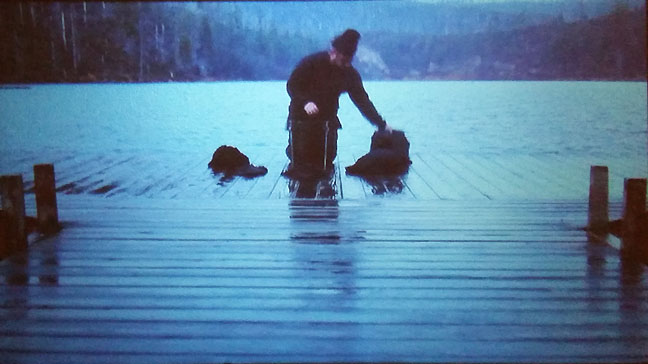 Maximiliano, Comx Agux Parx Chocolate Upstairs the next artist we encounter is Maximiliano's video, Comx Agux Parx Chocolate. In it a figure picks up and folds away black shrouds or bags? Perhaps it is symbolic of all those who lost access to healthcare, or rights to travel? Or perhaps simply an expression of loss of freedom or life? It doesn't really matter, just that it feels like an endless task, which is what resistance truly is. The mood is somber. 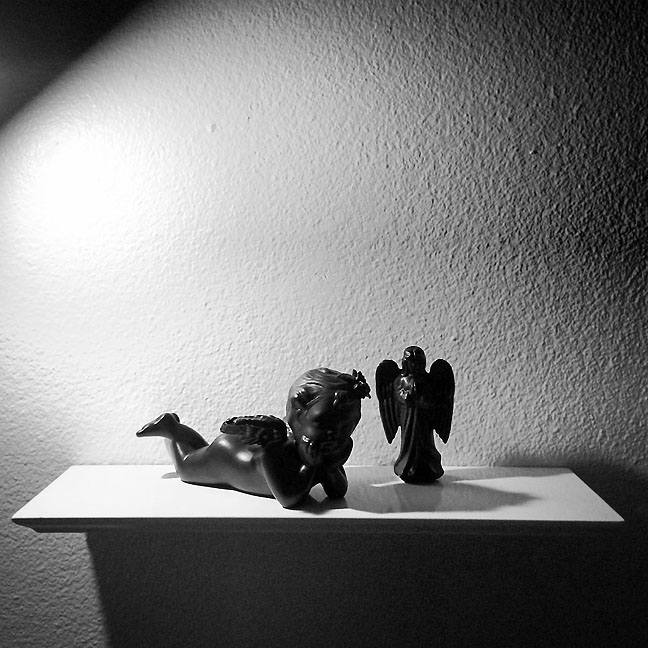 Maximiliano, Comx Agux Parx Chocolates. Last but not least are Maximiliano's sculptures Comx Agux Parx Chocolates. It consists of two small dark angels, dramatically lit and on a stark shelf. Are they really chocolate? Perhaps, but it is more important that the call attention to themselves as special occasion consumables. The two angels are common images, a cherub and a more christian one. They are oddly stoic and similar to other works in this show, very fragile looking. Their overall presence is one of innocence. This idea of consumable, precious and presented innocence is foregrounded here but the dark chocolate color makes them haunting. Are these dark figurines martyr's to the rising white nationalism? Overall, this exhibition is both subtle for having no Trump imagery and by only quoting one politician, a Republican one and in a favorable light at that. I like this high road, when so many who should know better are endorsing punching Nazis and seem to always be reacting to the latest tweet. Anger is an energy and a justifiable one but it is also a blinding force. In times like these the can still be principles and art can have poise yet still cut and be effective. These artists are also on the front lines. Do not get me wrong, protests are important but lets also remember that simply having principles and sticking to them is a form of resistance as well. Frankly, not losing your voice and agency, not losing your moral center is crucial in a time when education is under attack. Afterall, it is typically very hard to fight something without becoming just like that which is abhorred. Instead, resistance is not hate... resistance is sticking to your core values and in this case there is an unfolding understanding. There is wisdom here at Una and if the constant barrage of vitriol is suffocating, visit the art at Una Gallery to breathe the liberty and drink to it with your eyes. RESIST | February 2 - 26, 2017 Gallery Hours: Sundays 12-5PM Performance and Panel: Micro-Agressions, February 10, 5-7PM Una Gallery 328 NW Broadway #117 Posted by Jeff Jahn on February 08, 2017 at 13:37 | Comments (0) Comments Post a comment Thanks for signing in, . Now you can comment. (sign out)
(If you haven't left a comment here before, you may need to be approved by
the site owner before your comment will appear. Until then, it won't appear
on the entry. Thanks for waiting.)
|
| s p o n s o r s |
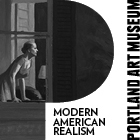 |
 |
 |
 |
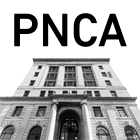 |
 |
 |
 |
 |
 |
 |
 |
 |
 |

|
Site Design: Jennifer Armbrust | • | Site Development: Philippe Blanc & Katherine Bovee | |

